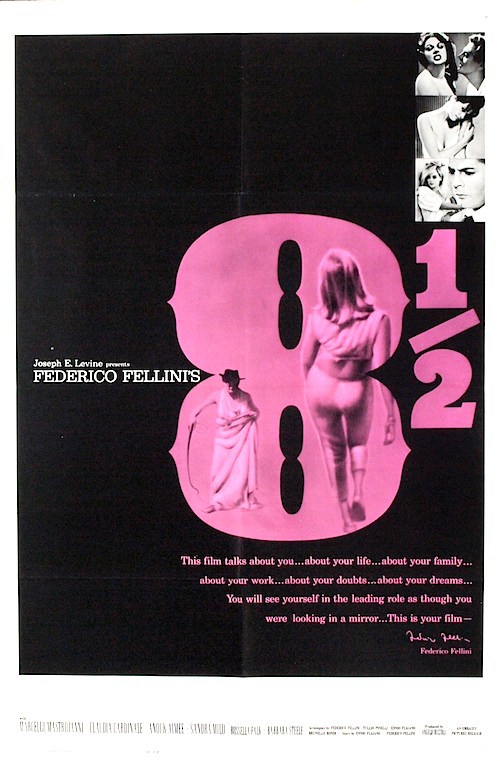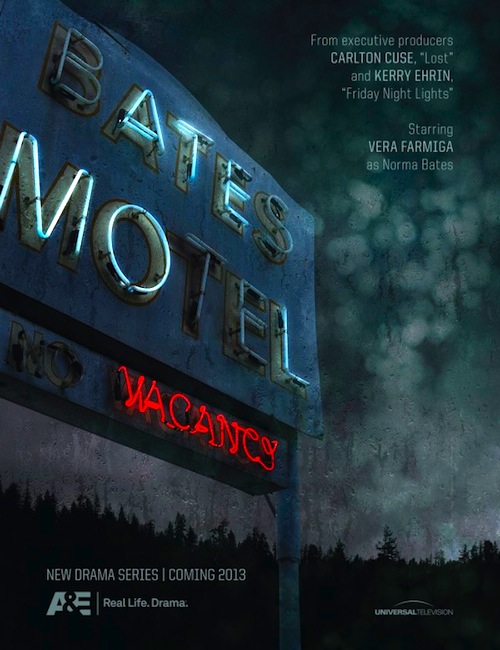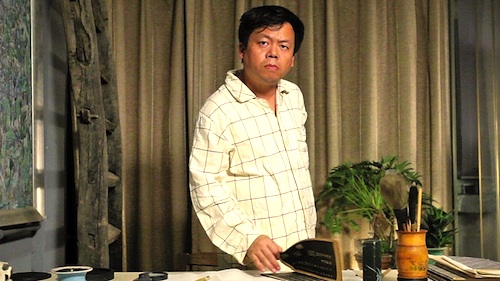By Joe Bendel. In 1963, Federico Fellini became a bit player in the Cold War when the Moscow International Film Festival’s non-Soviet judges threatened to walk out unless their decision to award the grand prize to 8½ was honored. It would be one of many accolades bestowed (grudgingly in that case) on Fellini’s masterpiece. Frankly, finding fresh new insights into the Oscar winner is rather daunting, but the fiftieth anniversary is a fitting occasion to take a shot at it. To mark the milestone, Corinth Films will rerelease 8½ this Friday in New York.
8½ and La Dolce Vita may somewhat blend together for many cineastes, because they probably first saw both films – which share similar themes and cast members – in short succession. Dolce has the fountain and 8½ has the weird space age scaffolding. Considered by Fellini his 8½th film (with shorts and collaborations counting as halves), it is a film that rewards revisiting at various stages of life. At first viewing, some will be struck by its Fellini-esqueness. However, those initiated into the auteur’s style will subsequently find it has a strong narrative structure and deep emotional feeling.
 As everyone ought to know, Guido Anselmi is an acclaimed director “taking the cure” at an upscale sanatorium. Presumably he is being treated for nerves and exhaustion, but he is really addicted to people and drama. He is woefully behind schedule and over budget on his next film. Intended as a profoundly personal statement, it has evolved into a science fiction epic, with that costly behemoth of a set still under construction.
As everyone ought to know, Guido Anselmi is an acclaimed director “taking the cure” at an upscale sanatorium. Presumably he is being treated for nerves and exhaustion, but he is really addicted to people and drama. He is woefully behind schedule and over budget on his next film. Intended as a profoundly personal statement, it has evolved into a science fiction epic, with that costly behemoth of a set still under construction.
Anselmi would like to save his career and his marriage to Luisa, but he seems incapable of either. Instead, he spends unrewarding time with his married mistress and is visited in his dreams and reveries by women from his past, including his mother and La Saraghina, the town harlot who fascinated him as a child.
Unlike the Soviets, the Vatican willingly joined the chorus of plaudits, putting 8½ on its list of the 45 greatest films produced before 1995, even though it is not particularly kind in its depiction of Catholic clergy. By the same token, Fellini’s film never celebrates infidelity or materialism. Anouk Aimee’s Luisa is more sophisticated and beautiful (in an earthy way) than his tarty mistress, but Anselmi cannot give her the emotional commitment she rightly demands.
Aimee is truly a wonder in 8½. Likewise, Claudia Cardinale brings down the roof with her late appearance as Claudia, the glamorous movie star with whom Anselmi has some ambiguous history. Although relatively unheralded amongst a cast of giants, Rosella Falk brings a smart, intriguing edge to film as Rosella, the Anselmis’ family friend and counselor. However, it is Marcello Mastroianni who anchors and defines the film. In a way, it is easy to overlook his performance as he is passively pushed and pulled from one episode to another. Yet, in quiet scenes, such as his pseudo-confession to Claudia and his confused late night attempt preserve his marriage, Mastroianni’s work is powerfully direct and honest.
8½ is one of a handful of films everyone has to see to consider themselves cinematically literate, but you cannot just see it once. With the passage of time, Anselmi’s crisis of confidence will resonate differently. If you have only seen the musical Nine or the various pastiches, you have not experienced the real thing. It really is that good. Recommended unreservedly to anyone who takes film seriously, 8½ opens this Friday (3/22) at the Quad Cinema.
LFM GRADE: A+
Posted on March 18th, 2013th at 2:47pm.


